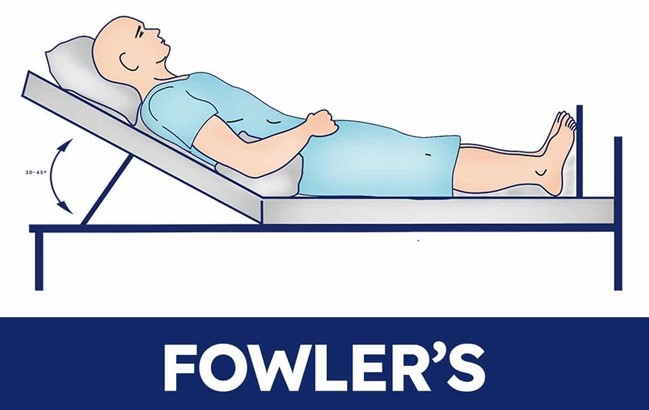A nurse is reviewing the laboratory report of a client who has hypoparathyroidism. The nurse should expect which of the following values?
Phosphate 5.7 mg/dL
Vitamin D 25 ng/mL
Calcium 9.8 mg/dL
Magnesium 1.8 mEq/L
The Correct Answer is A
Choice A reason: Phosphate 5.7 mg/dL is an elevated value, as the normal range is 2.5 to 4.5 mg/dL. Hypoparathyroidism causes low levels of parathyroid hormone (PTH), which regulates calcium and phosphorus balance in the body. Low PTH leads to low calcium and high phosphorus levels in the blood.
Choice B reason: Vitamin D 25 ng/mL is a normal value, as the normal range is 20 to 50 ng/mL. Hypoparathyroidism does not directly affect vitamin D levels, but vitamin D supplements may be given to help increase calcium absorption and lower phosphorus levels in the blood.
Choice C reason: Calcium 9.8 mg/dL is a normal value, as the normal range is 8.6 to 10.2 mg/dL. Hypoparathyroidism causes low levels of parathyroid hormone (PTH), which regulates calcium and phosphorus balance in the body. Low PTH leads to low calcium and high phosphorus levels in the blood. However, calcium levels may be normal or near- normal in some cases of hypoparathyroidism, especially if the condition is mild or well-controlled with treatment.
Choice D reason: Magnesium 1.8 mEq/L is a normal value, as the normal range is 1.5 to 2.5 mEq/L. Hypoparathyroidism does not directly affect magnesium levels, but magnesium deficiency can cause or worsen hypoparathyroidism, as magnesium is needed for PTH secretion and action. Magnesium supplements may be given to correct magnesium deficiency and improve PTH function.
Nursing Test Bank
Naxlex Comprehensive Predictor Exams
Related Questions
Correct Answer is C
Explanation
Choice A reason: This test does not detect antithyroid antibodies in your blood. Antithyroid antibodies are proteins that atack the thyroid gland and can cause autoimmune thyroid diseases, such as Hashimoto’s thyroiditis or Graves’ disease. To detect antithyroid antibodies, you need a different blood test called the thyroid peroxidase (TPO) antibody test.
Choice B reason: This test does not measure the amount of thyroid hormone that ataches to a protein in your blood. Thyroid hormone can exist in two forms in the blood: free or bound. Free thyroid hormone is not atached to any protein and can enter the cells and tissues where it is needed. Bound thyroid hormone is atached to a protein called thyroxine-binding globulin (TBG) and cannot enter the cells and tissues. To measure the amount of thyroid hormone that ataches to TBG, you need a different blood test called the total thyroxine (T4) test.
Choice C reason: This test determines whether your thyroid gland is overactive, appropriately active, or underactive. TSH is a hormone produced by the pituitary gland that stimulates the thyroid gland to make and release thyroid hormones, such as thyroxine (T4) and triiodothyronine (T3). These hormones regulate many body functions, such as metabolism, growth, and development. The TSH test measures the amount of TSH in the blood and reflects how well the thyroid gland is working. If the TSH level is high, it means that the thyroid gland is underactive (hypothyroidism) and not making enough thyroid hormones. If the TSH level is low, it means that the thyroid gland is overactive (hyperthyroidism) and making too much thyroid hormones.
Choice D reason: This test does not measure the absorption of iodine and how it relates to the thyroid gland. Iodine is a mineral that is essential for the production of thyroid hormones. The thyroid gland absorbs iodine from the food and water we consume and uses it to make T4 and T3. To measure the absorption of iodine by the thyroid gland, you need a different test called the radioactive iodine uptake (RAIU) test.

Correct Answer is A
Explanation
Choice A: Maintain the client in Fowler’s position. This is correct because Fowler’s position, which is a semi-sitting position with the head of the bed elevated 45 to 60 degrees, can facilitate the drainage of gastric contents and reduce the risk of aspiration.
Choice B: Use sterile water to irrigate the nasogastric tube. This is incorrect because sterile water is not necessary to irrigate the nasogastric tube, unless the client is immunocompromised or has a high risk of infection. Tap water or normal saline can be used to irrigate the nasogastric tube, following the provider’s orders or the facility’s protocol.
Choice C: Moisten the client’s lips with lemon-glycerin swabs. This is incorrect because lemon-glycerin swabs can dry out and irritate the client’s lips and oral mucosa, especially if used frequently. The nurse should use water-soluble lubricant or lip balm to moisturize the client’s lips and mouth.
Choice D: Measure abdominal girth daily. This is incorrect because measuring abdominal girth daily is not enough to monitor the progression of the intestinal obstruction and the effectiveness of the gastrointestinal decompression. The nurse should measure abdominal girth more frequently, such as every 4 hr or every shift, and report any changes or abnormalities.

Whether you are a student looking to ace your exams or a practicing nurse seeking to enhance your expertise , our nursing education contents will empower you with the confidence and competence to make a difference in the lives of patients and become a respected leader in the healthcare field.
Visit Naxlex, invest in your future and unlock endless possibilities with our unparalleled nursing education contents today
Report Wrong Answer on the Current Question
Do you disagree with the answer? If yes, what is your expected answer? Explain.
Kindly be descriptive with the issue you are facing.
